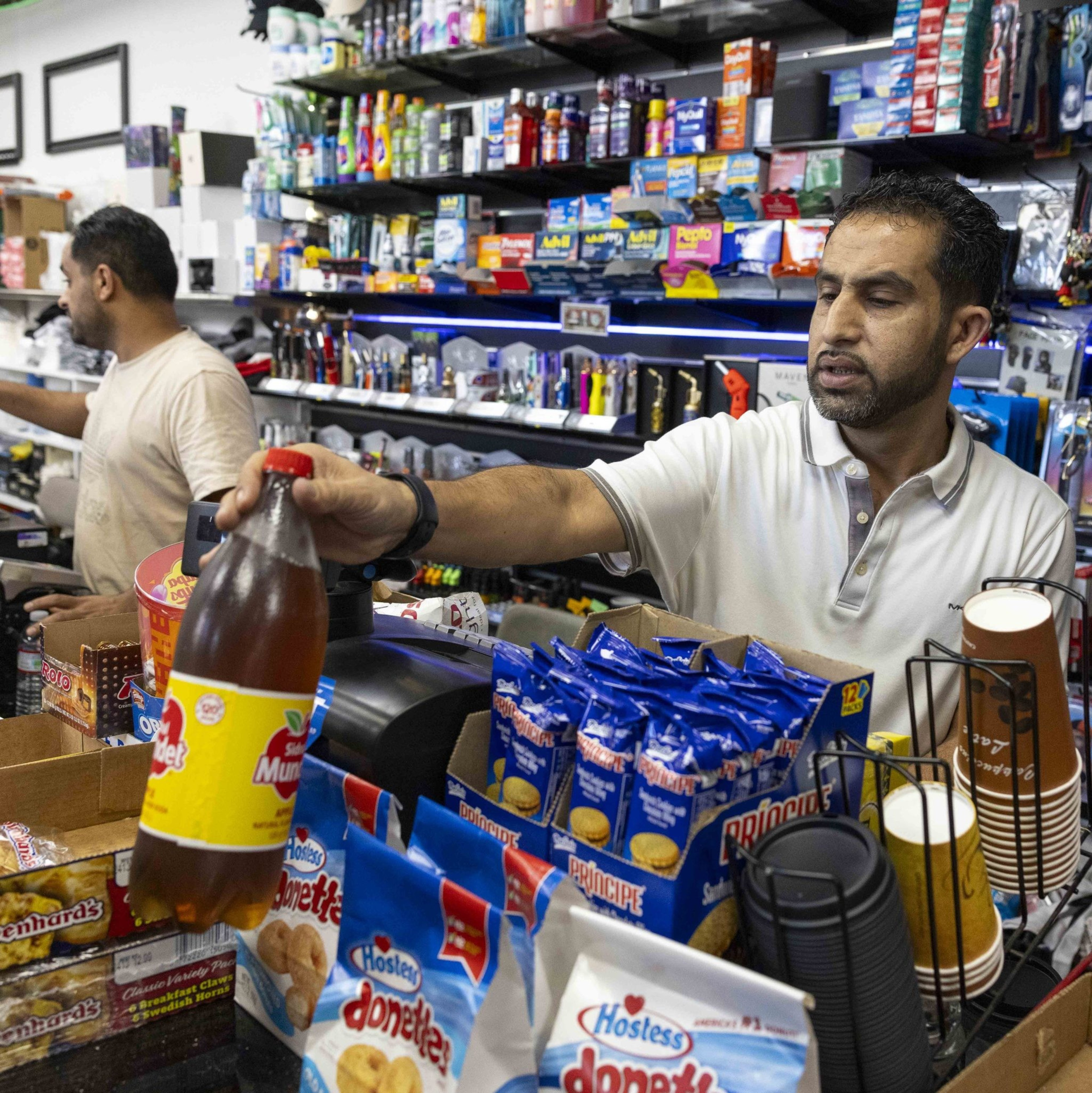Mayor London Breed’s curfew on Tenderloin stores hasn’t stopped late-night drug scenes, but it has been successful in frustrating business owners, who say they’ve lost sales.
Since mid-August, the city has ordered that certain stores in a troubled 20-block area lock up by midnight. Almost two months into the curfew, enacted as a two-year pilot program, residents and business owners are split as to whether it’s working.
But Fawaz Algahim can say for sure that sales are down.
Algahim, who owns and operates the Plaza Snacks & Deli convenience store, along with his brother, said he used to stay open until 1 or 1:30 a.m. but now closes promptly at midnight. Is he missing out on late-night customers?
“Yes, of course,” Algahim said, adding that the curfew, which does not apply to bars and restaurants, doesn’t make sense to him. He wants the city to repeal it.


The stated goal of the curfew is to decrease drug activity and late-night loitering, which leaves trash and disturbs Tenderloin residents, the city says. The ordinance (opens in new tab) allows the city to cite a business multiple times in a night, as long as the citations are at least an hour apart. Each citation costs a maximum of $1,000.
The city has so far cited three businesses for violating the curfew, according to the mayor’s office. One of them, Mi Reyna Market, has requested an administrative hearing, which is scheduled for Oct. 17.
Miriam Zouzounis, who serves on the executive team of the Neighborhood Business Alliance (opens in new tab), described the curfew as “collective punishment.”
She said that if stores lose business because of the curfew, the city needs to offset those losses through subsidies, grants, or fee reform. Meanwhile, she added, the curfew isn’t changing street conditions, because corner stores are not responsible for the poverty and drug use in the Tenderloin.
“Workers and businesses are bearing the burden of these systemic issues,” Zouzounis said. “The merchants feel like they know that we’re dealing with this because the city has failed.”
The curfew program is slated to continue until August 2026. Zouzounis said her group has asked the city to conduct research on the program’s efficacy and present its findings at a hearing after six months. Ideally, she said, the city will end the program after a year based on those findings.
The mayor’s office did not immediately respond to a request for comment.


On a recent weeknight between 8 and 9 p.m., The Standard observed open drug use, sidewalk markets, and small gatherings in front of corner stores.
José Martinez, an employee at Taqueria Castillo, said there have been thinner crowds on sidewalks recently, but he attributes that to the increased police presence, rather than the curfew. He said the taqueria, across McAllister Street from Plaza Snacks & Deli, has seen small declines in sales.
A man named Joseph, who declined to give his last name, said he has been living on the street in the Tenderloin for three years. He said the curfew has just shuffled people to stores that stay open.
“The herd moves,” Joseph said.
Zouzounis said merchants generally supported the curfew before it was enacted, despite concerns over lost revenue.
“We should be supported, and we’re trying to stay in compliance and work with the city,” Zouzounis said. “But instead, it’s just punitive measure after punitive measure.”
